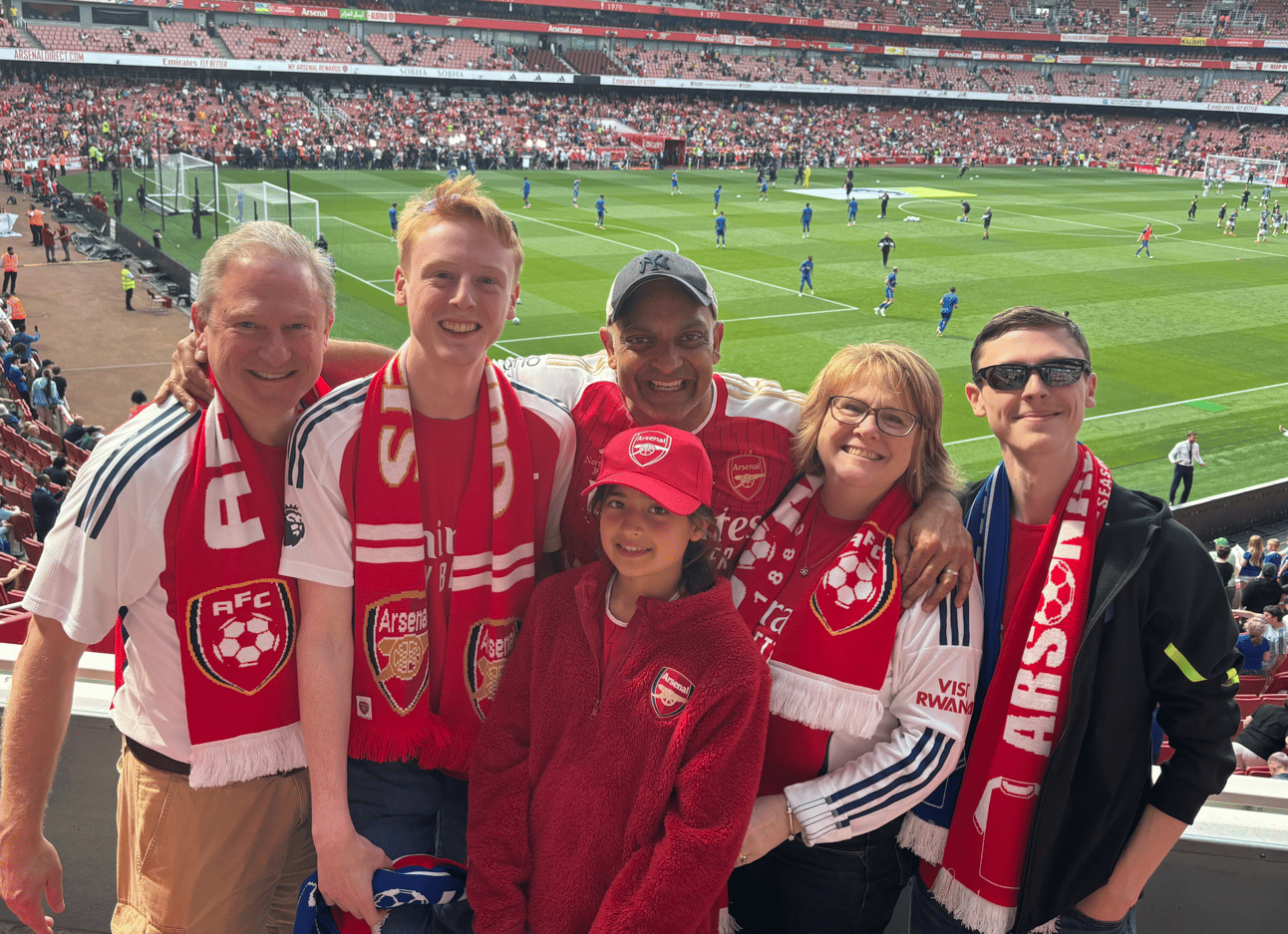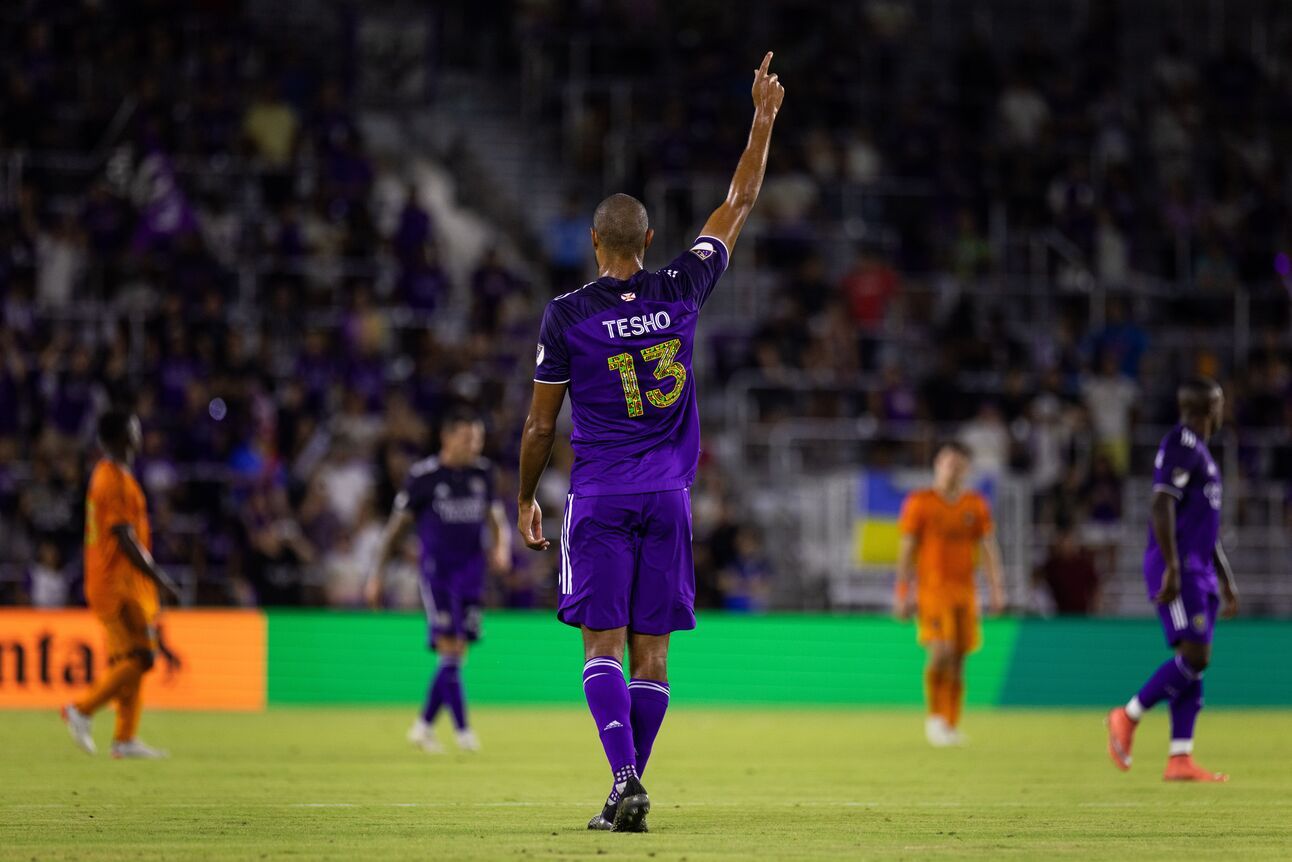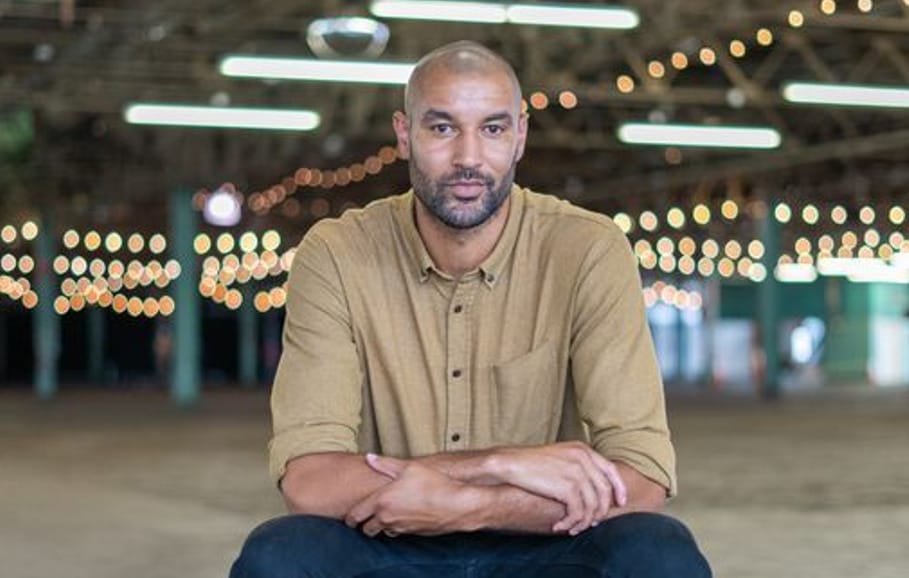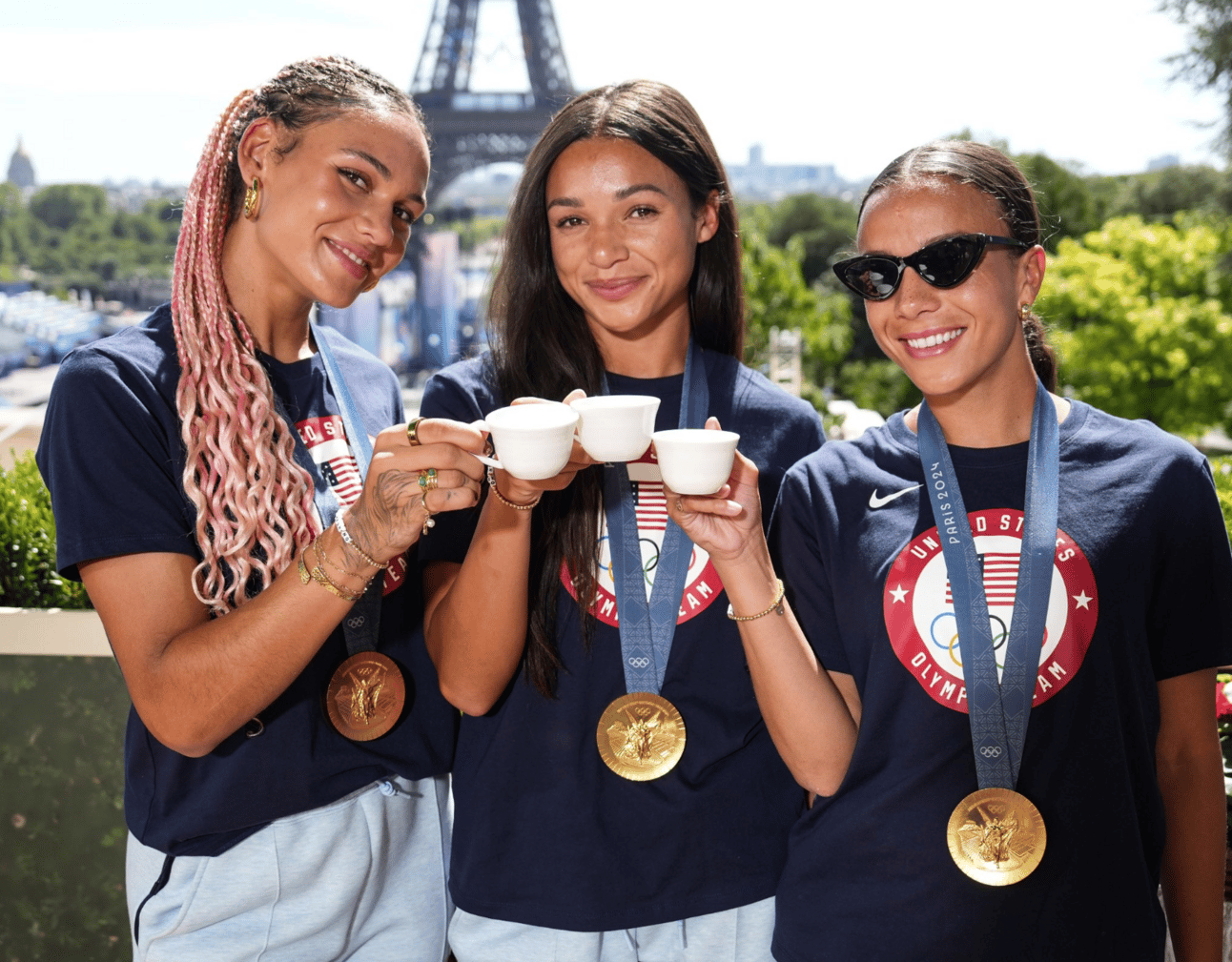
IN THIS ISSUE
🤝 Introduction: Summer of Soccer wraps up
🇬🇧 Today’s Sponsor: Your UK dream trip
👨🎓 Soccer Thought Leader: Tesho Akindele, 8-year MLS veteran
👥 Mentorship Opportunity: 1-on-1 with Tesho Akindele
⚽️ Soccer Jobs: The best new jobs in soccer
INTRODUCTION
Good morning, Pathwayers!
The Summer of Soccer is coming to a close - and what a summer it’s been.
Copa America was an absolute show stopper, the U.S. Women grabbed the gold in Paris (!!), we saw dozens of international friendlies all over North America, and now Leagues Cup is now in full swing, the playoff push awaits for MLS, NWSL, and USL.
So much soccer, so little time.
It’s a reminder of the massive and significant growth the U.S. has seen over the last few years - and of what’s to come, too. The FIFA Club World Cup arrives in 2025, alongside the next edition of the Concacaf Gold Cup, and the 2026 FIFA World Cup is less than two years away. 🤯
We’re at the epicenter of the world’s game over the next two years and there has never been a better time to get connected to the sport. We hope our newsletter - and the broader Pathway community - can be a help to those of you that want to find and build your career in soccer.
Thanks for following along!
-Kyle Sheldon, Co-Founder & CEO
This edition of the Pathway is brought to you by Premier League Tours

Have you ever watched the Premier League and dreamed of being there, in the action, on the edge of your seat? UK-based Premier League Tours (PLT) specializes in making it easy for you to experience your magical matchday across the pond. Pick your dream games and PLT will customize everything for you. Email [email protected] to learn more about what’s possible in building your football dream trip.
Visit premierleaguetours.com for more info.
(Interested in sponsoring a future edition of the newsletter? Let’s connect!)
SOCCER THOUGHT LEADER: TESHO AKINDELE

“You never know. You have to be ready. Your number will get called and you have to be ready.”
It was an absolute joy chatting with Tesho Akindele. He is a breath of fresh air - charismatic, honest, insightful, and an open book.
We discussed his life as an eight-year pro in MLS, his breakout season in college, and how he, in a sense, reinvented himself to fans, and then how he prepared himself for his post-playing career. His perspective will no doubt be of great value to current players and coaches, but also for the individual that wants to more boldly define his or her own personal brand and take the next step in their career.
We hope you enjoy the conversation and grab a nugget or two of wisdom from our new friend.
-Nolan Sheldon, Co-Founder & CXO
Questions and answers have been lightly edited for length and clarity (and any emphasis below is ours, fyi!)
PATHWAY: All right, Tesho, so let's jump in here. Can you share with us your soccer origin story, growing up in Calgary?
TESHO: My origin story comes mostly from my dad. He's Nigerian. So, he moved from Nigeria to Calgary when he was 20-years old - and soccer's kind of in my blood in that way. And as soon as I could move, I was kicking a balloon and then I was kicking a ball not too long afterwards - it's just always been a part of my life. My dad was my coach from the time I was eleven all the way through eighteen. And a huge part of the reason why I was able to become a professional is him pushing me a little bit harder than I ever wanted to be pushed, but that I needed to get to the level I wanted to achieve.
PATHWAY: When did you realize that becoming a pro was a realistic goal?
TESHO: Yeah, it's funny because I grew up before the academy [system] was really big - I think the academy started when I was like 16 years old. So, at that time, half of the good players went to the academy and then another half kind of stayed in the state league - versus now where you have to go to the academy to be a serious player. I stayed in the state league and then I ended up going to a division two school in Colorado (Colorado School of Mines) for engineering. I was always good at math and science.
I would say it wasn't until after my freshman year at the School of Mines that going pro was something I thought of as a real option - there was actually one point in my freshman year, I scored 10 goals in a week. It was like three goals, three goals, four goals and Sports Illustrated was talking to me. All these D1 schools started calling me, you know, and then I was like, “geez, man, I can probably play professionally.”
I never really thought I’d be a pro until that week - that one week turned a lot of things around for me.
PATHWAY: And did that one week fully change your mentality and approach?
TESHO: I would say so, yes. My mentality did shift for sure. After that I was coming to practice early every day, working on finishing drills and different stuff like that.
Becoming a pro kind of always seemed like an outside goal, but I definitely really wanted it. I left school three and a half years into my engineering degree to pursue a pro career - my mentality was “I'm going to go after this for three years.” I didn't even think I'd get drafted [to MLS] because I was from a division two school. So, I was like, if I don't get drafted, I'll play USL for three years. If I'm not an MLS player by then, I'll finish my engineering degree, you know? And, luckily I did get drafted and I was able to go on to make a career out of it.
PATHWAY: Rewind to the start of your pro career, with what you learned over the course of your 8-year career, what would you do differently?
TESHO: I think one clear thing I would do differently is take better care of my body. I think a lot of people who become professional athletes are athletic naturally - your genetics are good, you know? So I would show up to training. would kind of relax, talk to my friends, go out and train and then come back in, chill, and then leave, you know? And I was injury free my whole life. It wasn't until I got to Orlando, about five years into my career, where I started picking up some injuries.
And then I really had to step up that prehab and rehab routine. And I wish I would have just been on top of it beforehand. You know, I wish I would have come in early and spent 20 minutes before training, stretching, strengthening my core, stuff like that - that I would say that's probably the biggest one.
PATHWAY: Can you recall specific moments in your journey that proved to be a catalyst for development and growth?
TESHO: Yeah, I can think of two pretty good ones. So, one is what a lot of people who have been professional players experience - your whole life, you're the man, you know, you're the best on your high school and the best in college - then you become a pro and you're the worst player on the team. So, that's a humbling experience.
I remember being in FC Dallas and it was cold and raining - it was a Saturday morning and there is a training for all of us who are not included in the 18-man roster for the game that evening. And I remember thinking “this kinda sucks.” But, there was a guy on my team, Victor Ulloa, who was, at that point, like six people down in the defensive mid depth chart. If anybody has no chance to play, it's Victor. But he was there, training hard. And then that week there were two red cards, an injury and somebody was going to go on international duty. And the very next week, Victor was starting and he played the rest of the season. He played every game the rest of the season.
And so that moment was a really good lesson. You never know. You have to be ready. Your number will get called and you have to be ready. So, then the same thing happened to me. We had a guy, Mauro Diaz on my team when I was in Dallas, amazing player. And, it wasn't until he got hurt that I got my chance. We decided to flip our formation from one forward to two forwards. I got my chance to play. And luckily because I saw what happened to Victor, I was ready.
The second moment was during the worst year of my career in 2018 in Dallas. I scored only two goals that season and it was in the same game. I was out of contract with Dallas, got traded to Orlando and my wife was due to have a baby that year. So it was like, man, I just had the worst year of my career. I've been traded - my back is against the wall. If I have another bad season, I'm probably out of the league.
I ended up having the best season of my life. I don't know if I have any particular lesson other than it was a big trajectory change in my career. A lot of players will face that moment when your back is against the wall; you have to be ready for those moments.
PATHWAY: Let’s talk a bit about leadership and communication within the team - what does great leadership look like to you?
TESHO: I think, within the team, there are two types of leadership styles and two types of leaders. There is one leader who is just on you all the time - demanding a high level - if you make a bad pass, they're like, “what on earth are you doing?” And then there's another type of leader who reassures you after a bad pass and lifts you back up “You’re all right, let's get the next one. Keep your head up.”
Teams need both of those people and they need a healthy balance of both of those people to succeed. If you have way too many of the first, then the culture is tight and especially younger players cannot thrive in that type of situation most of the time, cause it's too tense. You're too nervous to make a mistake. Also, if you have too many leaders like the second example, you’re not going to be competitive enough.
You need a good balance of leaders who are going to lose their mind on you and leaders who are going to reassure you. Me personally, I was always the soft guy - cheering my teammates on and saying, “you're good, we'll get it next time.”
PATHWAY: What does a healthy coach and player relationship look like? How did you manage those relationships throughout your career?
TESHO: You know, what's funny is I played for Oscar Pareja eight of my nine seasons. I was with him five years in Dallas and then again in Orlando. I played for the Canadian national team a few games with different guys like John Herdman, but most of my career was with Oscar.
I have a funny story to share - it was my second year in the league, I wasn't playing as much as I wanted to and I went into Oscar's office and I was like, “hey coach, what can I do to get some more playing time?” And he was said “you know exactly what you need to do to get more playing time. You're just coming in here to kiss my butt.” And I was like, he's right, I do know what I needed to do.
This is pro sports - it's serious business. You know what you need to do. Pro sports is all about the results. So, if you're a forward, like I was, and you haven’t scored in five games, don't go ask the coach why you're not playing. Go out and shoot the ball for two hours after practice instead of asking the coach why you’re not playing right now, you know - score in every small-sided game you play. If you do that, then you'll get another chance.
Another point, going from college to the pro level - in college, you’re still a kid and the coach is the boss, but at the pro level, you're both adults. And I think understanding that of course the coach is surely the boss, but you’re both adults and you also have ideas that matter, especially as you get further on in your career. Don't be afraid to contradict the coach and offer an alternative idea - it doesn’t have to be in public, but maybe in private - if you have your own ideas, bring them up because I think the coaches are much more likely to respect players with some personality and a confidence about them. So don't be afraid to step up and man to man, have a conversation with the coach.
PATHWAY: What are the most important qualities of a successful coach?
TESHO: At the international level, you need to have a clear plan when everybody gets in and you also need to find a way to quickly build a culture. In a club setting, like in MLS, honestly, it's almost all about culture building.
Don’t go overboard with the tactics - but rather focus on empowering the players. The top players know what they're supposed to do a lot of times too - they don’t need a ton of instruction. I think the best coaches are just the ones who create a culture of being demanding of their players, but they're also building the players up.
So, it's honestly 80% about culture - there is so much parity in the league, small margins, so culture is the difference. What has allowed Seattle to go on a tear for eight years? It's because they had a better culture, surely.
PATHWAY: Who is most responsible for building culture - the coaches or the players?
TESHO: Coaches build culture, for sure, but I think the best player on the team is probably the most influential in reinforcing or breaking the culture. I remember we had a rule one time, no phones in the locker room and here the best player on our team has his cell phone in the locker room - two weeks later, everyone has their cell phone out in the locker room. But the best player is the only one that could have first broken that rule.
The coach is probably the second most important, I would say. They need to make sure that there's a symbiotic relationship between them and the best player on the team.
That is something that I learned from Oscar, he was like, people are going to follow my rules. And if not, I don't care if you're the highest paid player - I will quit my job or you'll follow my rules. He was not going to be in a situation where the best player on the team has a different idea of the culture than what he did. And I think that's really important because he understood that he alone could not set the culture. He needed whoever the top player was on the team to be aligned with him. So, in my opinion, the most important person is the top player. And so the coach needs to find someone that is not only a very good player, but also aligns culturally with what he is trying to build.
PATHWAY: Let's talk about post-playing career and how you made that transition. Share your thought process, how you planned for retirement, and what advice you would give to someone in a similar chapter of life?
TESHO: Well, for most athletes, there are some warning bells of when your career is coming to an end. For me, one was when I started to get injured more. The second warning sign was that I actually felt like a little bit of the fire was slipping - to be completely honest, toward the end of my career, I could feel that fire leaving. Being a pro player is an amazing job, but once you lose that fire, it is very hard.
For me, I wanted to always chase that fire in my life, whatever it is. And I could feel it kind of leaving soccer and going somewhere else. At first, I didn't know what to replace it with. My family and my wife have been great, but I needed something else for me personally to replace it with.
So, at that point, I started getting on social media more and just sharing more about myself. Cause I figured I might be one year or two years away from retirement and nobody knows who I am at all. Nobody knows anything about me. And I'm like, I think I'm a smart enough person. If I just shared some of my thoughts, I think somebody out there is going to like it. And so that's what I started doing - just sharing more of my thoughts, whether it be education, personal finance or real estate, all kinds of different stuff.
And just by putting that signal out there, a ton of inbound communication came in. When people realize I'm a soccer player, but I'm also interested in whatever niche thing they're interested in, the combination of those two was like super strong for people.
My advice would be, first, is just start meeting people, especially when you're still an athlete. So, I would say, whatever you’re interested in, fashion, marketing, design - cold call, cold email influential people in those spaces and just say, “hey, I’m a player for Charlotte FC and I'm interested in marketing - I would love to just come and introduce myself and hear more about what you do.”
And the reason that's so powerful is I always tell people, think about being on the receiving end of that call. Like this marketing guy is like, he's going to go home and tell his wife like, ‘man, a Charlotte FC player wants to go hang out with me today.’ Like I'm for sure doing that. So, they're always going to take the call. They're always going to take the meeting.
A lot of people do that when they're retired. So they say, ‘Hey, I just retired…’ When you say I just retired, they know you're coming from a place of need, you know, versus when you play, you don't need anything from them. I don't need a job. I don't need money from you. I don't need anything. And so I think people are much more willing to build a strong relationship with you when you come from a place of strength, like, ‘Hey, I'm actively playing professional soccer, but I'm also interested in whatever you're doing.’ I think that opens a ton of doors.
And even going back to, guess, what's one thing I would have done in my career, I would have met more people too. I would have tried to meet one person a month in a field that I was interested in and I would have built an amazing network during my career that afterwards I could have, I think I did well at leveraging it by the end, but I could have probably done even better.
PATHWAY: Last question - what was your favorite thing about working in soccer?
TESHO: My favorite thing was scoring goals. There's no better feeling than scoring a goal - so, if there's one thing I really do miss about soccer, it's that feeling of scoring a big goal in a big game. I miss that.
PATHWAY MENTORSHIP OPPORTUNITY: 1-ON-1 WITH TESHO AKINDELE

Tesho has generously offered to conduct two (2) 1-on-1 mentorship sessions in the coming weeks. If you’re interested in speaking with Tesho directly, click below to raise your hand for the opportunity. 🙋
PATHWAY MENTORSHIP APPLICATION:
SOCCER JOBS: THE MOST INTERESTING NEW JOBS IN SOCCER
New week, new jobs in soccer. Here are a few that caught our eye:
Athletic Trainer - IMG Academy
Manager, Strategy - US Soccer
Physical Therapist - St. Louis SC
Chief of Revenue - Oakland Roots
Producer, Social Media - Angel City FC
Director, Digital Marketing - San Diego FC
Account Manager, Client Services - Octagon
Executive Director - Yukon Soccer Association
PHOTO OF THE WEEK: TRIPLE ESPRESSO ☕️
How can you not love the triple threat of Trinity Rodman, Sophia Smith and Mallory Swanson? These three crushed it in Paris to help the USWNT take home gold (again).
And, by the way, they’re 22, 24, and 26-years old, so we’ve got a lot more elite soccer to look forward to out of the group now known as Triple Espresso.
ALSO…
If this email was forwarded to you, you can sign up here to ensure you get every issue (sent on Wednesdays!) directly in your inbox.
And, if you’re a club or brand looking to get in front of ambitious talent in soccer, drop us a line.
Give us a follow!
See you next week, soccer friends!



